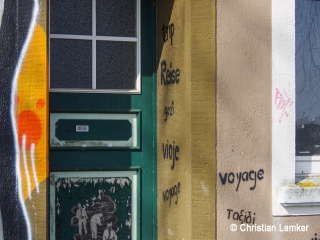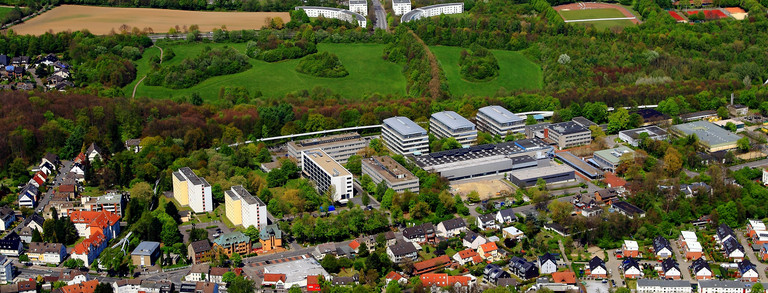BMBF project "MOSAIK: Demographic Change and Neighbourhood Development - Model Strategies for Integrated and Culturally Sensitive Portfolio Development"

With "MOSAIK: Demographic Change and Neighbourhood Development", a three-year project on integrated and culturally sensitive stock development in neighbourhoods will start at the Faculty of Spatial Planning in March 2017.
The joint project successfully applied for by the departments of spatial planning and planning theory, urban and regional sociology and the city of Remscheid within the framework of the BMBF research programme "Kommunen innovativ" (https://kommunen-innovativ.de/) investigates the question of how heterogeneous urban neighbourhoods function under today's conditions.
The aim is to gain a deeper understanding of the mechanisms that have so far led to low-conflict coexistence in neighbourhoods with heterogeneous groups of residents, in order to develop model strategies for integrated and culturally sensitive stock development in such neighbourhoods on this basis.
The study area is the city of Remscheid. The city in the Bergisches Land is characterised by the extraordinary heterogeneity of its population, which has so far led to remarkably few social or cultural conflicts. This situation makes the city an ideal real laboratory for the development of model strategies for integrated and culturally sensitive stock development in the context of demographic change.
Since the latter has very different effects on small areas, the research project focuses on the urban neighbourhoods of Hasenberg, Hohenhagen, Honsberg and Rosenhügel. The common feature of these neighbourhoods, which are structured differently in terms of morphology, urban planning and socio-economic factors, is the heterogeneity of the resident groups.
Within the framework of the research project, key actors and networks will be identified and analysed with regard to their role and significance for living together in the selected neighbourhoods. The focus will be on the interplay between state, municipal, private and civil society actors and their interactions with the neighbourhood population. Based on this, strategies for type-appropriate neighbourhood development are generated together with the local actors and their exemplary implementation is accompanied.
Project management: Prof. Dr. Thorsten Wiechmann
Project coordinator: Dipl.-Geogr. Dennis Hardt
Project processing: Dr. Thomas Terfrüchte und Dipl.- Ing. Viola Schulze Dieckho
Contakt
Prof. Dr. habil. Thorsten Wiechmann
Tel.: 0231 755-5428
Send E-Mail
Dipl.-Geogr. Dennis Hardt
Dr. Thomas Terfrüchte
Tel.: 0231 755-8659
Send E-Mail
Dipl.-Ing. Viola Schulze Dieckhoff
Tel.: 0231 755-2471
Send E-Mail
Duration of the project:
01.03.2017 to 29.02.2020



